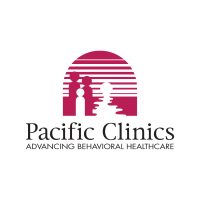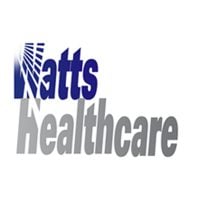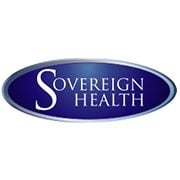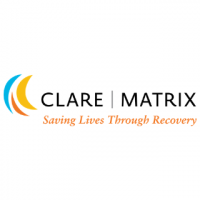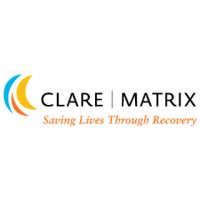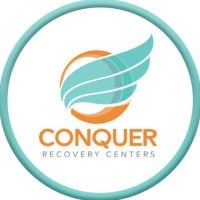AADAP - Asian American Drug Abuse Program - Therapeutic Community
Drug Rehab Center in Los Angeles, California
AADAP is a CARF-accredited, SAMHSA and state-licensed organization that offers comprehensive addiction treatment to those suffering from mental health, alcohol and/or opioid issues in Los Angeles, California through evidence-based practices blended with holistic approaches such as yoga, mindfulness meditation and recreational activities to provide personalized recovery plans.
About This Los Angeles, CA Facility
AADAP - Asian American Drug Abuse Program - Therapeutic Community, situated in Los Angeles, California, is a residential alcohol and drug rehab facility for adults, offering services in English, Korean, and Spanish. This center provides a comprehensive treatment program that includes work therapy, medical and educational support, and aftercare services, with a capacity of 162 beds.
- Multilingual services: AADAP offers treatment in English, Korean, and Spanish, ensuring accessibility for a diverse population.
- Comprehensive treatment: The program includes individual, group, and family counseling, work therapy, case management, drug testing, education on addiction's impact, and relapse prevention.
- Holistic approach: AADAP provides classes on emotional management, coping skills, communication, building healthy relationships, and wellness, addressing various aspects of recovery.
AADAP holds CARF and SAMHSA accreditations, as well as a state license, demonstrating its commitment to providing high-quality care. The facility offers a sliding scale of fees for those who qualify and accepts Medi-Cal, Blue Cross Blue Shield, and Optum insurance plans.
The center treats a range of substance abuse issues, including alcoholism and opioid addiction, and addresses co-occurring mental health conditions. AADAP employs evidence-based treatment modalities, such as counseling, therapy sessions, group activities, and educational classes, to help individuals develop the skills necessary for long-term recovery.
Genders
Ages
Modality
Additional
Accreditations
State License
SAMHSA

CARF
The Commission on Accreditation of Rehabilitation Facilities (CARF) is a non-profit organization that specifically accredits rehab organizations. Founded in 1966, CARF's, mission is to help service providers like rehab facilities maintain high standards of care.
Conditions and Issues Treated
Opioid addiction involves addiction to legal or illegal opioids. It may happen very quickly with any opioid use. Sometimes within a matter of days. Opioid addiction is a known as a high-risk factor for future heroin addiction.
Opioid withdrawal can be extremely uncomfortable and lead the user to continue to use even if they want to quit. Stopping using an opioid requires careful medical observation. Sometimes the withdrawal can persist for many weeks, which can put the user at a high risk for relapse.
It is recommended to receive inpatient treatment and a medically supervised detox like those offered at AADAP - Asian American Drug Abuse Program - Therapeutic Community in Los Angeles, CA, CA, to manage the withdrawal process while learning lasting tools to maintain recovery. In some circumstances medications can be used to manage opioid addiction.
Levels of Care Offered
This center offers a variety of custom treatment tailored to individual recovery. Currently available are Aftercare Support, Inpatient, with additional therapies available as listed below.
Inpatient rehab is intended to treat severe addictions and co-occurring disorders. The length of stay in California varies from four weeks to six months according to the individual needs. Inpatient rehab ensures that the patient stays in a substance-free environment at AADAP - Asian American Drug Abuse Program - Therapeutic Community.
After treatment, addiction treatment can be frightening for newly sober people. Aftercare support provided by AADAP - Asian American Drug Abuse Program - Therapeutic Community is designed to give resources and help on a continued basis. It can involve finding housing in and around California, setting up 12-step meeting groups, continued medical monitoring, and counseling.
AADAP - Asian American Drug Abuse Program - Therapeutic Community‘s Therapies & Programs
Individual therapy aims to identify the core issues that would have led the patient to substance abuse and address the root cause effectively. Patients find the therapist as a person who they can trust. It helps them to open up and discuss personal and sensitive issues, which they may not be comfortable discussing in a group.
Couples therapy is an approach wherein the patients and their partners are engaged together as a part of the treatment process. When a person becomes a victim of substance abuse, it affects the patient and the people around him, particularly his partner. Their relationship can become strained due to lack of communication, financial issues, loss of trust, lack of intimacy, and physical abuse in more severe cases.
Couples therapy addresses these issues and tries to rebuild the trust between the partners. The partner’s involvement in the process will result in greater chances of treatment success and sustained recovery.
Family therapy is a set of therapeutic approaches that assumes that the entire family is a system. It utilizes the strengths and resources of the family to help the patient refrain from resorting to substance abuse. It helps to repair relationships and improve communication between family members.
Group therapy happens at AADAP - Asian American Drug Abuse Program - Therapeutic Community in a controlled group environment, as opposed to a one-on-one setting. It supports Los Angeles, CA patients’ recovery by offering a sense of comfort and letting them know that they are not alone. Through shared conversations, patients also learn to develop faith and understanding and gain insight on their addictions.
Unresolved trauma is often a key reason why many patients resorted to substance abuse. Trauma therapy refers to treatment wherein specialist therapists help the patients to resolve the trauma that led the patients to substance abuse. The trauma could be physical abuse, sexual abuse, war, natural disasters, divorce, accident, loss of a loved one, etc. Thinking of these traumatic events causes emotional disturbances like anxiety, depression and results in addiction. If trauma is the primary cause of substance abuse, then both issues must be addressed. Otherwise, there is a risk of relapse. Trauma therapy also improves the cognitive functions and provides long term benefits.
Cognitive behavioral therapy (CBT) is a way of addressing concerns through talking. It can be used in individual counseling sessions. Talking through issues with professionals at AADAP - Asian American Drug Abuse Program - Therapeutic Community can identify sources of discomfort or unhealthy thoughts. It is a way of learning about yourself and your individual perceptions. CBT is a healthy way of addressing some behaviors which may be bringing unintended consequences in your life.
Rational Emotive Behavior Therapy (REBT) sees a person suffering from substance addiction to have illogical reasoning, counterproductive actions, and does not see things clearly. Due to this, REBT deals with cognition, images, and behavior extensively to rectify the client’s bad habits. REBT pushes an individual to become more reasonable and choose a life without the repercussions of addictions.
Patients at AADAP - Asian American Drug Abuse Program - Therapeutic Community in Los Angeles, CA learn how to self-soothe by conducting rational self-counseling. REBT provides their patients with the skill sets necessary in handling problems all by themselves, without seeking professional help. The process calls for practice, reiteration, and bolstering the new way of thinking being introduced to the patient.
Patient Experience
Fitness Therapy
Fitness therapy is a combination of psychotherapy and physical exercise. It’s a part of holistic drug rehabilitation programs offered by AADAP - Asian American Drug Abuse Program - Therapeutic Community that seek to treat the mind and body. It’s particularly useful in addiction rehabilitation, as substance addiction harms the body as well as the mind. Even mild exercise can benefit the recovering person
Payment Options Accepted
For specific insurance or payment methods please contact us.
Is your insurance accepted?
Ask an expert, call (888) 674-0062
Additional Details
Specifics, location, and helpful extra information.
Los Angeles, California 90043 Phone Number(323) 293-6291 Meta DetailsUpdated April 15, 2024
Staff Verified
Patient Reviews
There are no reviews yet. Be the first one to write one.
Los Angeles, California Addiction Information
More than 3 million of California's citizens are addicted to illegal drugs. Almost 800,000 people use hard drugs, almost 5 million use marijuana, and another 2.1 million abuse alcohol every year. Other substance abuse issues such as binge drinking and teen drug use are also common. Many illegal drugs such as cocaine, heroin, methamphetamine, and marijuana are smuggled into the state from Mexico.
10% of adults in Los Angeles have used illicit drugs or abused prescription drugs within the past year. Heroin, marijuana, prescription pain relievers and cocaine are widely abused in Los Angeles. Over 130,000 people in the city struggle with addiction to drugs or alcohol. Many residential rehab facilities in the area can provide long-term care. The best way to find the right treatment option is to speak with a professional.
Treatment in Nearby Cities
- Dana Point, CA (51.5 mi.)
- Oroville, CA (421.5 mi.)
- Corona, CA (44.6 mi.)
- La Habra, CA (22.5 mi.)
- Panorama City, CA (17.4 mi.)
Centers near AADAP - Asian American Drug Abuse Program - Therapeutic Community
The facility name, logo and brand are the property and registered trademarks of AADAP - Asian American Drug Abuse Program - Therapeutic Community, and are being used for identification and informational purposes only. Use of these names, logos and brands shall not imply endorsement. RehabNow.org is not affiliated with or sponsored by AADAP - Asian American Drug Abuse Program - Therapeutic Community.




